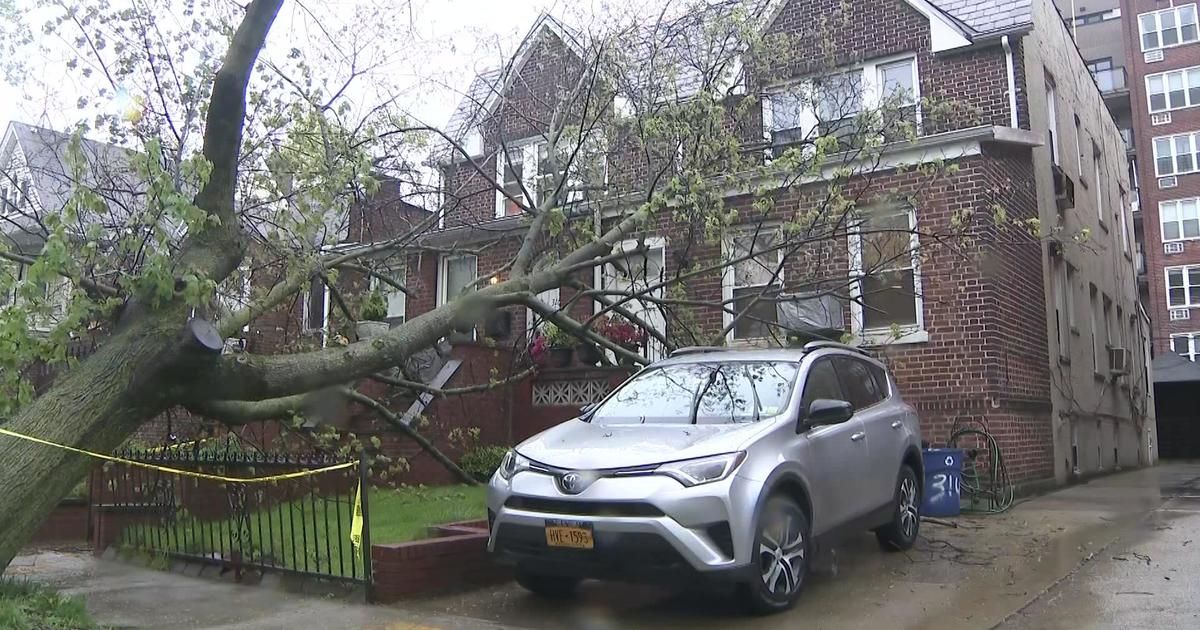New Jersey Town Is Home To World's First Solar And Hydrogen-Powered House
PENNINGTON, N.J. (CBSNewYork) -- Imagine having a home that operates completely off the grid, all the energy you need comes from the sun and hydrogen.
Turns out, this home exists and it's in New Jersey.
"Think about an energy system where the only emissions is pure water and pure oxygen. Everything we need to live," said Michael Strizki.
Strizki, president of the Hydrogen House Project, spent the last nine years in his workshop perfecting and downsizing the technology for the solar/hydrogen-powered home in Pennington, New Jersey, CBS2's Vanessa Murdock reported.
He said it's the first of its kind in the world.
"This is going to change the shape of energy and energy storage to come," said Strizki.
Homeowner Alice de Tiberge waited with bated breath to get her hands on the technology.
"I knew that I had to work with Mike Strizki, and I had been harassing him for four years," she said.
De Tiberge said she did it for sustainability.
"We can do it and it's not as expensive," she said.
"The only thing consumed in my system is photons, and if the sun stops shining we're all screwed," said Strizki.
The minigrid starts at the solar panels. The incoming energy goes through inverters. What isn't being used gets stored in a battery bank. When they're full, the extra energy goes into making hydrogen.
"Hydrogen is the ultimate batter. It has no shelf life," said Strizki.
Water runs through the electrolyzer, where water molecules get split into hydrogen and oxygen. The oxygen bubbles up and out and the hydrogen gets stored until it's needed. That's when the fuel cell kicks in.
"This take hydrogen gas and it converts it to electricity," said Strizki.
"The hydrogen is excellent. It's very safe," said Dunbar Birnie, a professor of materials science at Rutgers University.
Birnie said it's as safe as what's in your home now.
"It won't be any different. All the devices are designed to operate very safely with hydrogen," he said.
Strizki hopes his set up will be the way of the future.
The price for installation is $135,000. Strizki said between avoiding electric bills and energy credits from the state, the system pays for itself in five to seven years.



